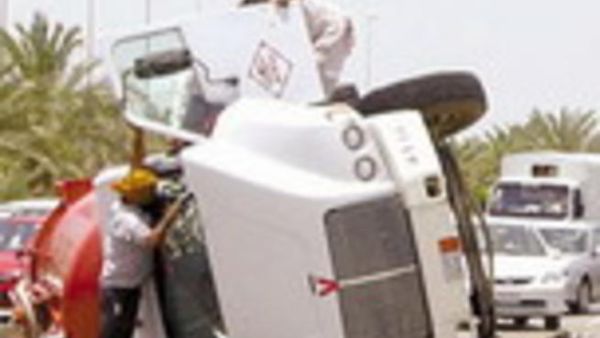Karim Ghallab, the Moroccan Equipment and Transport Minister, has recently decided that it was time to undertake drastic measures against the macabre statistics of people killed on Moroccan roads. In fact, in addition to the 3,800 lives that are lost every year due to traffic accidents and the countless other victims suffering for a lifetime in the aftermath, the social cost ranges above US$1.2 billion, a staggering 2.5% of the kingdom's GDP.
As statistics generally reveal, it is the driver’s misbehavior behind the wheel that is primarily responsible for such deadly accidents. As a result, Ghallab unveiled a new traffic law that is not only dedicated to safety and prevention, but rather, oriented towards calming down the over assertiveness and general distraction of Moroccan drivers.
Included in the proposed Article 308, three main categories of infractions can be observed. The first is composed of serious infractions of the road code, for example driving 30 km/h above the legal limit or crossing a red traffic light, which can lead to a 3,000 dirham fine.
The use of a cellular phone in the car will, on the other hand, fall into the second category of infractions, and implies fines up to 1,500 dirham. Deterioration of the road or any kind of equipment represents the third category and is likely to engender an 800 dirham fine. Finally, if any of these infractions turn out to be the cause of an accident, the one responsible may be required to pay a 10,000 dirham fine in addition to a two-year sentence in prison.
The renewed road code will also establish an entire new system for driving licenses, based on 12 or 24 points (depending on the kind of license). Licenses will be taken away each time an infraction is committed, and finally leading to a two years prohibition of driving. In addition, policemen will be able to access an up to date record of the driver’s record thanks to a microchip enclosed in each license.
Despite the fact that a large majority of the population is aware of the danger on the Moroccan roads and realize that measures have to be taken for everyone’s security, Morocco remains a country where through corruption, one can easily avoid getting fined. Hence, even if the government has invested in eight photo radar devices that are automatically computerized and will increase the transparency of the transactions, many people fear that higher fines may ultimately lead to greater corruption.
© 2007 Al Bawaba (www.albawaba.com)







